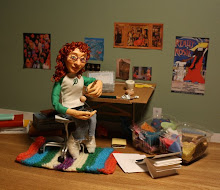I read too much. I have always read too much. I am sure most parents say they would be over-joyed if their children read too much. But the fact is, when it actually happens, it’s not what you think it will be. I’m not saying my parents weren’t happy that I read too much, but they did spend a rather large amount of time telling me and my brother to “put the book down and come eat dinner.” Now, if we had simply put our books down and gone running to the dinner table, I don’t think there would be as much trouble as there was. Instead, we would have to finish the page. But here’s the catch, on how many pages does the paragraph end neatly at the bottom? Very few, I should think, and therefore we’d have to finish that paragraph also. But when you’re gulping down fiction, the ends of paragraphs aren’t exactly noticeable, and so “just let me finish this page” would really end up becoming, “just let me finish this chapter.” And now, any book-lover will be asking, “but why stop there?”
Why indeed? I believe that by the age of ten or so, I had trained myself to ignore chapters. By that point, I didn’t really see what the purpose was to have chapters, for I had no problem sitting down and reading until I finished the book. I still have no problem doing this, though now these one-sitting books have gotten much longer and therefore often last until the wee-hours of the morning. But back to dinner.
So, my brother would continue to read, through the end of the page, the end of the paragraph, and, indeed, the chapter. Furthermore, we would be so absorbed, we wouldn’t hear my mom yelling at us to “just drop the book and come eat.” Eventually we’d make it to the table, though throughout dinner we would pine after the books we had put down, or, more precisely, had ripped out of our hands.
Nowadays, I would say most parents have to tell their children to turn-off the tv and do their homework. In my house, it was, “put down the book and do your homework.” This phrase sounds quite odd. Put down a recreation you love and learn from to do homework that bores you. Maybe even, put down the classic children’s novel to answer questions on a book you read three years ago and hated because you said the characters were underdeveloped? Right. That makes perfect sense.
Reading for school was always difficult. I don’t mean that the reading itself was difficult, or the questions complicated, that problem was that I read too fast and understood too much. In schools, it is quite common for a class to take at least a month to read or study a book. It would take me a day to read that same book. A week, tops. This meant, by the time the questions were handed out, or a project needed to be done, my memory of the book was at least three weeks old, and my mind was concerned with some new adventure.
I remember getting in trouble for reading ahead while the class was reading aloud. Examples from third grade come to mind, as do examples from tenth grade. The teachers would make us read “pop-corn style” students would be chosen at random to pick up reading the book. This method was used to ensure that everyone was actually reading the book. My problem was that I while I was reading the book, I was most likely a few chapters ahead of the class.
At this point I really must comment upon reading aloud; some people just don’t read aloud well. I have listened to some amazing readers in my time, my mom, for one, my good friend Anna, another. Anna and I used to read Shakespeare aloud together simply because it was so much nicer aloud. In audio books, it is mostly the voice that makes for a good listen. I have listened to books I hated to read simply because the reader had a fabulous voice. I’ve also had to turn off books that rank among my most lent simply because the readers were so awful.
In school, you cannot simply hit the stop button. Therefore, I became very good at tuning out the rest of the world. I have become so good at it, in fact, that you can dance in front of me and yell my name at the top of your voice, and I wouldn’t even know you had done it when you finally caught my attention. This ability is not exactly cheered by teachers. In fact, they rather hate it. Especially during pop-corn reading.
“Your answer is too long. Go back to your seat and fix it.” Come again? You think the answer to the comprehension question is too long because it has too many examples and is written in complete sentences? So you’re telling a second-grader that she comprehends the reading too well. Since when has comprehension been a crime? (Yes, since politics began comprehension has been a crime. But I’m not talking about politics; I’m talking about elementary reading lessons.)
Now, my second grade teacher was a lovely lady, I have absolutely nothing against her. I’m just asking why a second grade teacher, or any teacher, for that matter, should have a problem with a student writing complete sentences and using examples from the text to back up her writing. Time wasn’t the issue; it took me less time than most of the other students. Even now, I have no idea what the issue was. But I do know that from then on, I did the smallest amount of work possible to get an A. Yes, it is sad, but it gave me more time for my greatest love, my greatest passion, reading what I wanted to read.

No comments:
Post a Comment